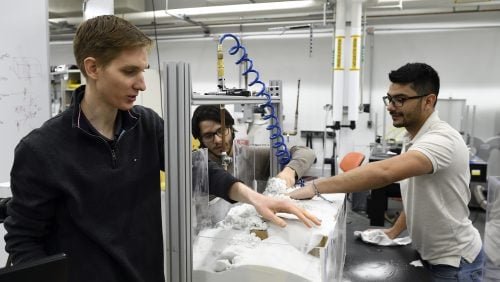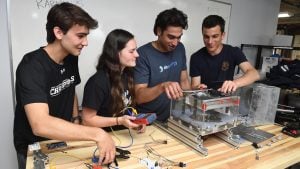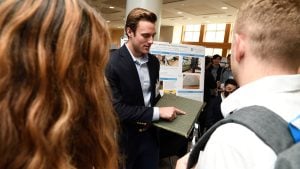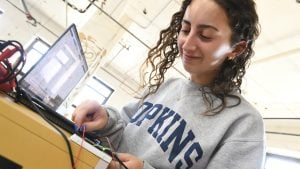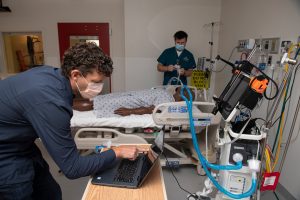A top 10 program in U.S. News & World Report’s 2025 graduate school rankings, our master’s program is interdisciplinary, collaborative, and can be aligned with your career goals to ensure you graduate with the knowledge and experiences you need for professional success.
| Application deadlines | October 15 for spring 2026 admission December 15 for fall 2026 admission |
| Average time to degree completion | Three to four full-time semesters |
| Cost of attendance (2025-26) | Tuition is $66,670 annually / $33,335 per semester More details |
| Funding your education | More details here |
No GRE required, and no application fee.
What makes our program unique?
-

Study in a top-ranked program
We are a top 10 program in U.S. News & World Report’s 2025 graduate school rankings.
-

Paid co-op
Gain real work experience and build professional connections while earning academic credit and a salary through the Whiting School of Engineering’s Master’s Co-Op Program.
-

Flexible pathways
With “All-Course,” “Essay – Research,” or industry-focused “Essay – Co-op/Internship” program options along with 12 optional subject-matter tracks, tailor your education to your professional goals.
About our program
Research opportunities
Be mentored by faculty who are redefining their fields and put your knowledge to work in world-class facilities, including the Mock OR for surgical robotics, the Laboratory for Computational Sensing and Robotics, and the Hopkins Extreme Materials Institute.
Industry connections
Through the Whiting School of Engineering’s Master’s Co-op Program, spend six months working with a corporate sponsor on an industry project while earning a salary and academic credit.
Unmatched access
Collaborate across disciplines with experts at JHU’s Applied Physics Laboratory and School of Medicine.
A track to suit your interests
Master’s student can choose up to two subject-matter tracks.
Home-to-Hopkins
Begin your studies online and finish your degree early! Students may take up to two courses online at home during the summer before arriving on campus for full-time study at our Homewood Campus.
"This advancement moves us from robots that can execute specific surgical tasks to robots that truly understand surgical procedures."
— Axel Krieger, associate professor of mechanical engineering, trained a robot to perform complex surgery without human help.
Outcomes-oriented
Our graduates are leaders in industry and entrepreneurs, working at the forefront of fields from aerospace, renewable energy, and bioengineering to government. Positions held by recent graduates include energy trader, product designer, software engineer, robotics engineer, and more.
According to the Bureau of Labor Statistics, in 2024, the median salary in mechanical engineering in the United States was $102,000, with projected employment growth of 11% in the field by 2033.
Sample of Recent Employers |
||||||||
|
The Mechanical Engineering MSE student experience
Research
Learn about our areas of research and associated research centers and institutes Learn moreLearn about program requirements
We offer "All-Course," "Essay - Research," and industry-focused "Essay - Co-Op/Internship" program options plus 12 optional specialized tracks.
Students completing an “all-course” degree will successfully complete a coordinated sequence of courses totaling 30 credits or more. A master’s essay or thesis is not required for this degree, which typically requires three to four semesters of study.
Both options provide students with an intensive exposure to advanced topics in mechanical engineering and strengthens understanding of engineering fundamentals.
Beginning in Fall 2025, students will be recognized for earning specialized tracks in a dozen mechanical engineering disciplines. Visit our MSE Mechanical Engineering – Tracks page for more info.
The degree typically requires three to four semesters of study. View this Sample Programs document to learn how you can finish your degree.
Students complete a coordinated sequence of courses and graduate research, and submit a master’s essay. These total 30 credits or more.
Work with our world-renowned engineering professors by conducting original research to produce an essay worthy of publication.
Learn more about MSE research!
View a sample of master’s essays by our students!
Beginning in Fall 2025, students will be recognized for earning specialized tracks in a dozen mechanical engineering disciplines. Visit our MSE Mechanical Engineering – Tracks page for more information.
The degree typically requires three to four semesters of study. View this Sample Programs document to see how you can finish your degree.
Students complete a coordinated sequence of 8-10 courses and a six-month co-operative/internship experience, which total 30 credits or more. Students then submit a master’s essay. A co-op (or “co-operative”) experience is an internship experience where students spend time working at a company or laboratory, usually outside of Johns Hopkins. Students are usually paid a stipend during the internship, and all students – international and American – are eligible to participate in this program.
To broaden the practical training for master’s students, the Whiting School of Engineering’s co-op/internship office teams with companies to provide an immersive master’s co-op/internship experience in a professional working environment. Goals and objectives for the master’s degree are developed for students in this option in conjunction with academic advisors.
- View a sample of master’s essays by our students.
- NEW! Visit our MSE Mechanical Engineering – Tracks page. Beginning in Fall 2025, students will be recognized for earning specialized tracks in a dozen mechanical engineering disciplines.
- The degree typically requires three to four semesters of study. View this Sample Programs document to see how you can finish your degree.
Imagine yourself here
Baltimore has so much to offer. From vibrant and diverse neighborhoods with affordable housing, a local farmers' market, excellent restaurants and the Baltimore Museum of Art just blocks from campus to professional sports teams, a rich history and a lively culture scene, make Baltimore a great place to call home.
Ready To Apply?
Get the information you need about our application process!
Only at Johns Hopkins
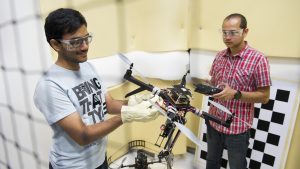
Dust in the Lunar Wind - Working with NASA, mechanical engineer Rui Ni has uncovered the fluid dynamics behind the radiating dust patterns that occur during a lunar landing and could potentially damage equipment.
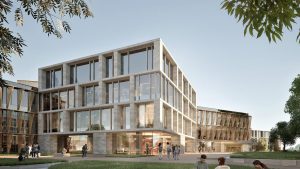
A transformational investment in data science and AI - We are building a national epicenter for research and education focused on emerging applications, opportunities, and challenges presented by data science, machine learning, and AI, including mechanical engineering.
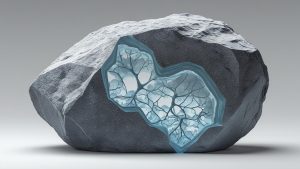
School of rock: Engineers use 3D X-ray techniques to crack hard mystery - For the first time, scientists watched sandstone deform from the inside out, grain by grain, revealing insights that could predict earthquakes and improve oil and gas reservoirs
